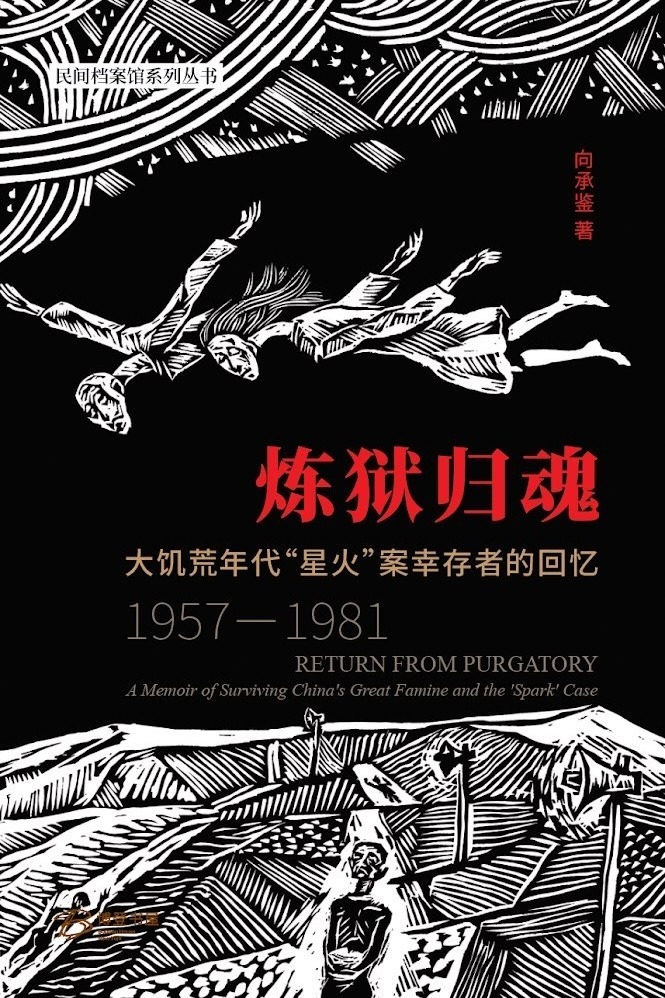
Return of the Soul from Purgatory: Memoirs of a Survivor of the "Sparks" Case from the Great Famine Era
In 1960, a group of faculty and students from Lanzhou University, who had been labeled Rightists and sent down to rural areas in Tianshui, Gansu, personally experienced the Great Famine. They self-published <i>Spark</i> magazine to expose and criticize the totalitarian rule that led to this catastrophe.<i>Spark</i> only published one issue before its participants were arrested and labeled as a counterrevolutionary group. Many were sentenced to long prison terms, and some were even executed. <a href=“http://108.160.154.72/s/china-unofficial/item/1759#lg=1&slide=0”>The first issue of <i>Spark</i> and more information about the "Spark Case" can be read here</a>.
<i>Return from Purgatory: A Survivor’s Memoir of the ‘Spark Case’ in the Great Famine Years (1957–1981)</i> is the autobiography of Xiang Chengjian, a key participant in <i>Spark</i> magazine. At the time, he and another student were responsible for printing the first issue, and he contributed six articles to <i>Spark</i>. Due to his involvement, he was sentenced to 18 years in prison for his role in the Spark case and was not rehabilitated until the early 1980s.
This memoir is divided into three sections, with a total of thirteen chapters spanning over 350,000 characters. It documents Xiang’s journey from being labeled a Rightist and sent to perform forced labor, to his arrest and 19-year imprisonment for his involvement in <i>Spark</i>, and finally to his struggle for rehabilitation and efforts to rebuild his life after release. In the book’s preface, scholar Ai Xiaoming offers the following assessment:
"Xiang Chengjian’s memoir holds significant value for the study of the intellectual history of contemporary China. First, it serves as another important testimony of the “Spark Case”, following Tan Chanxue’s memoir <i><a href=“”>Sparks: A Chronicle of the Rightist Counter-Revolutionary Group at Lanzhou University</a></i>, making it a crucial historical document on this act of resistance. The author reconstructs the social context before and after the case and describes how the young intellectuals behind <i>Spark</i> bravely challenged totalitarian rule. Second, the book provides a detailed account of labor camps in western China, with the author documenting his 18 years of forced labor in Gansu and Qinghai, unveiling a western chapter of China’s Gulag system. Third, it is a deeply personal intellectual history of a resister, showing the immense suffering, trials of life and death, and personal resilience under the crushing force of state violence."
The book’s appendix includes Xiang Chengjian’s six articles for <i>Spark</i>, an in-depth investigative report on him by journalist Jiang Xue, and a chronological record of the Spark Case compiled by Ai Xiaoming.
<i>Return from Purgatory</i> is published by Borden Press in New York and is the first book in the “People’s Archives Series”, published by the China Unofficial Archives. The author, Xiang Chengjian, has generously authorized the archive to share the book’s digital edition. Readers are encouraged to purchase the book to support the author and publisher.

Working toward a Civil Society (Episode 3): 李海
How can China build a real civil society? Since 2010, independent director Tiger Temple sat for a series of interviews with scholars and civil society actors.

Xu Zhiyong
Chinese human rights activist Dr. Xu Zhiyong, twice imprisoned for his longstanding advocacy of civil society in China, was sentenced to 14 years in prison by the Chinese government in April 2023. The documentary by independent director Lao Hu Miao was filmed over a four-year period, beginning with the seizure of the Public League Legal Research Center, which Xu Zhiyong helped found in 2009, and ending with Xu's first prison sentence in 2014.

Working toward a Civil Society (Episode 1): Zhang Hui
How can China build a real civil society? Since 2010, independent director Tiger Temple sat for a series of interviews with scholars and civil society actors.
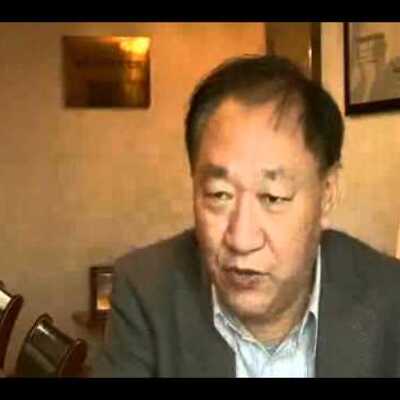
Working toward a Civil Society (Episode 31): Li Fan
How can China build a true civil society? Since 2010, independent director Tiger Temple has conducted a series of interviews with scholars and civil society participants.

South Side Street
South side Street near Tiananmen Square in Beijing has long been a gathering place for some homeless people as well as petitioners. The director became involved in the homeless relief charity in 2007, and continued to follow the film, which the director finished editing eight years later. The film was selected for the 12th China Independent Film Festival Documentary Competition.
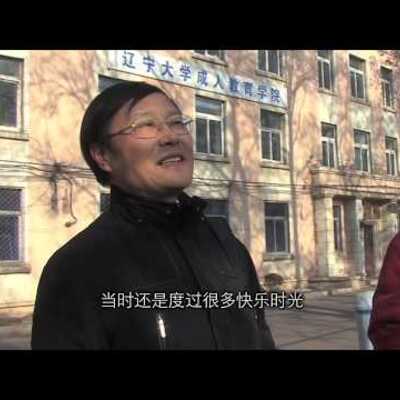
Chronicle of Western Liaoning, A
In 1959, in the desolate Lingyuan area in the western part of Liaoning Province, a group of intellectual rightists from the Shenyang University arrived. There, they were to labor and be reformed alongside criminal prisoners in the prison, while digging mines to build railroads. How did the Communist Party reform the intellectuals? What kind of encounters did these rightist intellectuals go through? Hu Jie's camera restores this history.
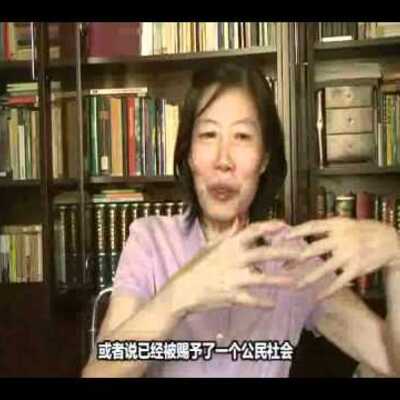
Working toward a Civil Society (Episode 7): Guo Yuhua
How can China build a real civil society? Since 2010, independent director Tiger Temple sat for a series of interviews with scholars and civil society actors.

Working toward a Civil Society (Episode 37): Pillar Yang
How can China build a true civil society? Since 2010, independent director Tiger Temple has conducted a series of interviews with scholars and civil society participants.

The Memo
In the spring of 2022, a wave of COVID-19 exploded in Shanghai. Under the policy of “Zero COVID,” 24 million residents were put under forced lockdown. Filmmakers and reporters used their phones, televisions, the internet, and other materials to capture scenes of lockdown and disputes between officials and civilians in Shanghai. Producers of this short film titled <i>The Memo</i> believe that it is necessary to record this historic episode in order to prevent our memories from fading away.
The production team, which was founded in 2020, strives to create works about the lower classes of Chinese society. <i>The Memo</i> was nominated for the Clermont-Féron Short Film Festival.

Though I Am Gone
On August 5, 1966, Bian Zhongyun, a 50-year-old vice principal of the Girls High School affiliated with Beijing Normal University, was beaten to death. The murder was by some of her students, a group of female Red Guards from the school. Bian was the first educator to be killed in Beijing during the Cultural Revolution. The night Bian was killed, Deng Xiaoping's two daughters, Deng Nan and Deng Rong, found Bian's husband and told him that they could only say that Bian died of high blood pressure due to illness, but not that Bian was killed. In the end, no one was criminally prosecuted.
The documentary revolves around interviews conducted with Bian’s husband, Wang Jingyao. Wang had documented the body of Bian in the aftermath of her death with a camera, and preserved her belongings. In this documentary, Wang shows these items to Hu Jie, and discusses with him the events leading up to Bian’s death. At the end of the documentary, Hu Jie displays the names of 201 teachers who were killed in Beijing in August 1966. This film portrays the trauma of those affected personally by the Cultural Revolution, and serves as a reminder of the scale of deaths and tragedy during the most violent periods of the Cultural Revolution.
This film is widely regarded as one of Hu Jie's most famous for its portrayal of Bian's husband, Wang Jingyao, and his efforts to document his wife's murder.

Ten Days in Xi'an
Published on January, 2022, “Ten Days in Xi’an” is a log of Chinese independent journalist Jiang Xue’s daily experiences under COVID-19 lockdown, posted onto WeChat’s social media platform. In this piece, Jiang depicts the crises and challenges faced by Xi’an residents under lockdown, such as the lack of access to medical resources. “Ten Days in Xi’an” was viewed by millions of Chinese users on social media platforms when it was posted, and received comments and support from thousands of Chinese citizens. It was later translated into English by Andréa Worden and published on Probe International virtually. You can find the translated article in the PDF below, or through this link: <https://journal.probeinternational.org/2022/08/22/ten-days-in-xian/>.

Jiang Qisheng: Civilian Report on the Situation of June 4 Victims in China
The Tiananmen Square massacre on June 4, 1989 and the subsequent mass arrests and purges created tens of thousands of June Fourth victims. Among them were June Fourth victims who fell into a pool of blood, the June Fourth disabled who were shot, the families of the June Fourth victims and the severely disabled, the June Fourth prisoners of conscience who were sentenced to imprisonment or re-education-through-labor, and the June Fourth victims who were subjected to other political persecution. On the occasion of the 20th anniversary of June Fourth, as part of Chinese civil society's efforts to recover the historical truth and rebuild historical memory, this report gives a basic description of the suffering of the June Fourth victims and their arduous journey over the past 20 years. It also analyzes the systemic factors that have contributed to the victims' suffering and proposes corresponding recommendations on how to change their living conditions.

Wuhan Diary: Dispatches from a Quarantined City
This book is a collection of diary entries written in the early months of the COVID-19 pandemic by Fang Fang, a Chinese writer and advocate of the working poor in China. In these diary entries, Fang Fang documents the various daily difficulties faced by her and other Wuhan residents from January to March 2020. In this book, she also ponders the implications of official policies with regard to the pandemic and the way in which the public and the government have responded to the outbreak of COVID-19. These entries tell us about the hopes and fears of the people of Wuhan during the early stage of COVID-19, and adds to our understanding of public opinion and government policies in China in the 2020s. The diaries were published in Chinese, and have also been translated by Michael Berry into English and published by Harper Collins Publishers.
You can purchase the English version of the book using <a href="https://www.harpercollins.com/products/wuhan-diary-fang-fangmichael-berry?variant=40153409749026">this link</a> .

Working toward a Civil Society (Episode 20): Zhang Yaojie
How can China build a true civil society? Since 2010, independent director Tiger Temple has conducted a series of interviews with scholars and civil society participants.

New Citizens’ Trial
In June 2010, scholars and activists Xu Zhiyong, Teng Biao, Wang Gongquan, Li Xiongbing, Li Fangping, Xu Youyu and Zhang Shihe (Tiger Temple) initiated the signing of the “Citizen's Pledge”, which called on Chinese citizens to “abide by principles of democracy, and the rule of law, safeguard the rights and livelihood of the people, and promote good governance”. On May 29, 2012, Dr. Xu Zhiyong, one of the founders of the pro-democracy movement “Open Constitution Initiative” (Gongmeng), published an article entitled “China's New Citizen Movement”, officially launching the <a href=“https://web.archive.org/web/20121226221847/http://biweekly.hrichina.org/article/1575”>“New Citizen Movement”</a>.
The goal of the New Citizens Movement is a free China governed by democracy and rule of law, a vibrant civil society, and a new national spirit of “freedom, justice, and love”. It aims to promote political and social transformation from authoritarianism to constitutionalism, and Chinese people will be treated as citizens, not subjects of the ruling class. Activities of the New Citizen Movement include advocating for equal rights in education, public disclosure of officials' properties, and organizing local citizen gatherings. (For more information on the New Citizens Movement, see the <a href=“https://cmcn.org/”>Chinese Citizens Movement </a>website. Organizers and participants in the New Citizens Movement have been subjected to repression and persecution.
On July 5, 2012, several hundred parents gathered at the Ministry of Education's Petitioning Office, displaying banners and chanting slogans demanding that the government protect migrant children’s right to education, before being stopped by police, who also beat them. As a result of this and other advocacy activities, New Citizens Movement organizers Xu Zhiyong, Zhao Changqing, and Ding Jiaxi were arrested in 2013 and charged with gathering a crowd to disrupt order in a public place, and their cases were heard for the first time at different levels of court in Beijing on January 22, 2014, on the eve of the Chinese New Year. All were sentenced to jail.
This documentary includes footage of the parents' protest in July 2012, and outside the courthouse at Xu Zhiyong's trial on January 22, 2014, as well as interviews with family members of the arrested activists, their lawyers, and academics, and supporters of the movement.On the day of his trial, hundreds of people showed up outside the courthouse in support, invoking Article 35 of the Constitution to point out that the case was an unfair trial that violated citizens' freedom of speech and expression.
In the film, Xu Zhiyong says in an interview that the New Citizens Movement wants to solve social issues through judicial processes, and that he believes it is important to take into account the perspectives of different stakeholders. Even with such a moderate stance, the authorities still harshly suppressed him and portrayed him as an enemy of the state. Scholar Guo Yuhua commented on the case : “If we wait for a ready-made civil society, there is none. Activism is to open up space where there is none, to create gaps where there are no gaps, and to expand it gradually.”
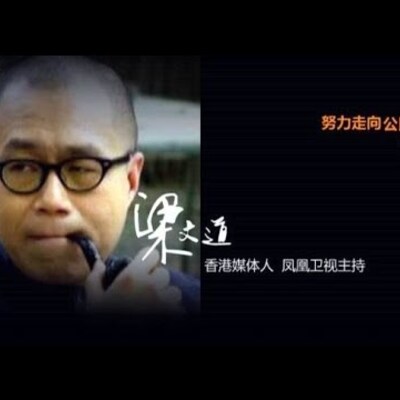
Working toward a Civil Society (Episode 47): Liang Wendao
How can China build a true civil society? Since 2010, independent director Tiger Temple has conducted a series of interviews with scholars and civil society participants.

Let the Sunshine Reach the Earth
Wang Lihong is a Beijing netizen, civilian journalist, and public service volunteer. Wang was accused of “picking quarrels and provoking trouble” for supporting three netizens in Fujian. On August 12, 2011, the case was heard for the first time in the Wenyuhe Court of the People's Court of Chaoyang District, Beijing. This film includes interviews with Wang Lihong's relatives, friends, defense lawyers and netizens, and records the historical scene of onlookers in the courts.
Ai Xiaoming’s film “Postcard,” also released in 2011, elaborates Wang Lihong’s activism in broader strokes, while “Let the Sunshine Reach the Earth” focuses on the process of her trial.
This film is in Chinese with Chinese subtitles.

Working toward a Civil Society (Episode 40): Huazhe
How can China build a true civil society? Since 2010, independent director Tiger Temple has conducted a series of interviews with scholars and civil society participants.
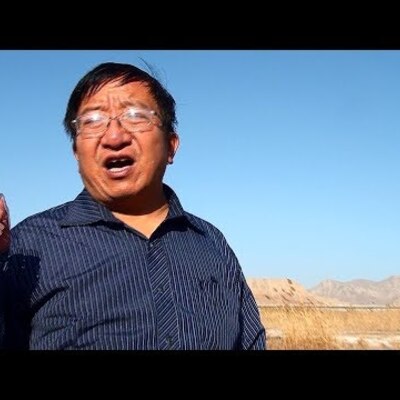
Working toward a Civil Society (Episode 52): Qu Mingxue
How can China build a true civil society? Since 2010, independent director Tiger Temple has conducted a series of interviews with scholars and civil society participants.